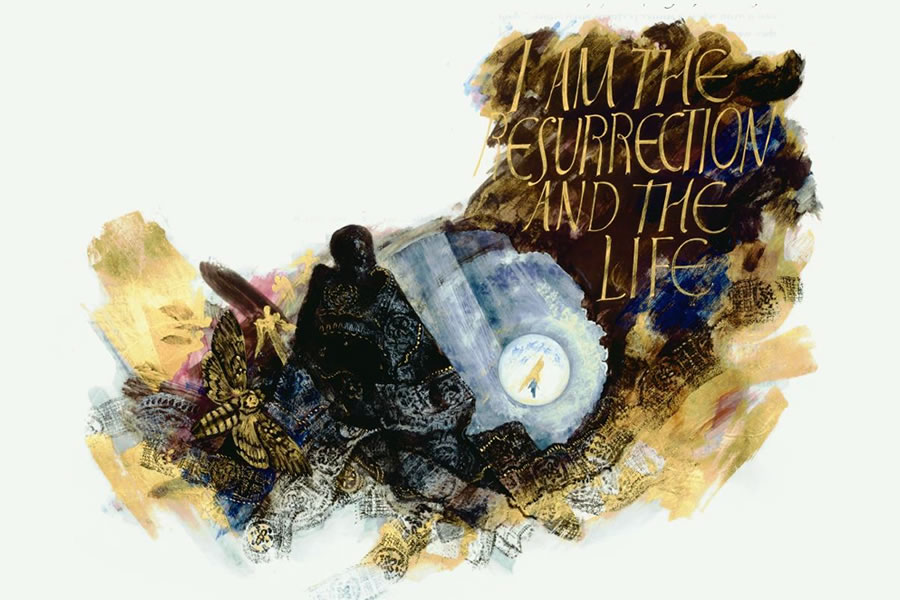
The Third Scrutiny: Lazarus and the Meaning of Lent
by Fr. Michael D. Accinni Reinhardt, MA, Mdiv, MS | 04/06/2025 | This Sunday's ReadingWith the Third Scrutiny the Gospel tells us about the raising to life of Lazarus. This shows us that Jesus is “the Resurrection and the Life”. Jesus in His obedience to His Father has the authority to give life to whom He will. The raising of Lazarus shows us what is to take place on the last day. In this Gospel, Jesus through His obedience to the Father, has the authority to give life to whom He will. This reading is a dramatic demonstration of the truth already declared in John 5.21 (“For as the Father raises the dead and gives them life, so also the Son gives life to whom He will.”) which is the best way anyone can comment on this story.
The raising of Lazarus is not a piece of magic, it is what will take place on the Last Day. It means that the believer has eternal life; that he or she has passed from death to life. It also, reminds us of what is celebrated at Easter and in Baptism, resurrection and eternal life. Are you aware that the name Lazarus means “God helps”. This Scrutiny celebrated on this day is primarily for the benefit of the Elect, but it reminds all the baptized of the promises God has made through Jesus of eternal life.
We are getting closer and closer to the death and resurrection of Jesus. What have you accomplished so far in Lent? Have you prayed for the poor souls in Purgatory or perhaps for those who have trespassed against you? Have you given alms to the poor? It is not only giving money but food, or just a few minutes of your time to someone that is alone. Have you fasted and abstained? Do you really know the difference between the two? A lot of Catholics seem to be confused between the two.
Ash Wednesday and Good Friday are obligatory days of fasting and abstinence for Catholics. In addition, Fridays during Lent are obligatory days of abstinence. When fasting, a person is permitted to eat one full meal, as well as two smaller meals that together are not equal to a full meal. The Code of Canon Law establishes that fasting is obligatory from the “age of majority” through the age of 59. What this means is, if you are a senior citizen, you do not have to fast. The norms concerning abstinence from meat are binding upon members of the Catholic Church from the “age of majority” and onwards. This means you should abstain from eating meat on Ash Wednesday, and all Fridays in Lent, including Good Friday, no matter how old you are.
I hope that the rest of your Lent will bring you closer to understanding a little more about your Catholic faith.
BACK TO LIST